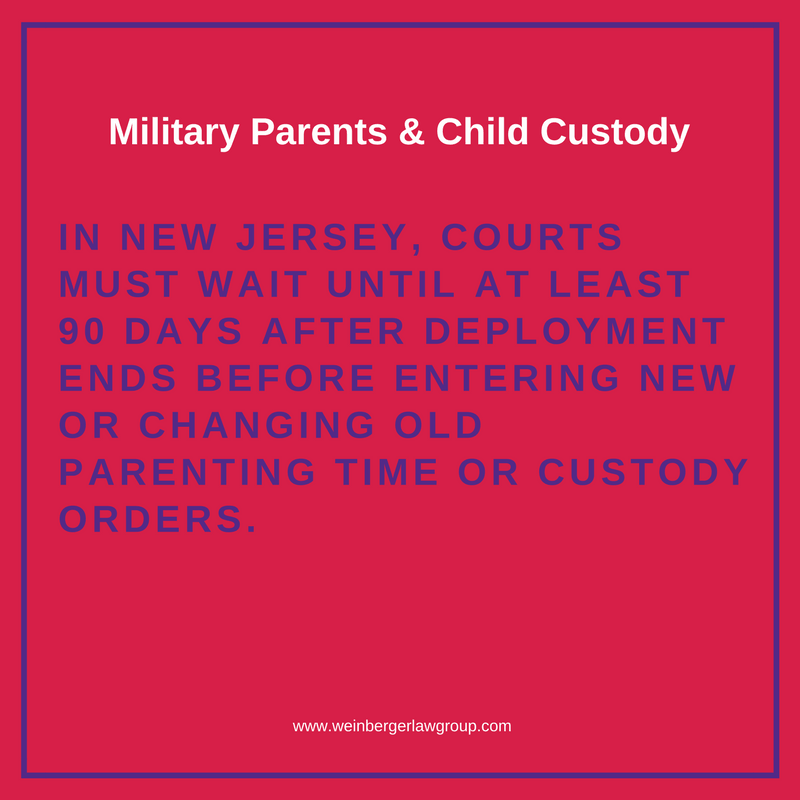What Military Parents Need To Know About Child Custody Laws In New Jersey

Like all other divorced c0-parents, military service members who co-parent sometimes experience legal issues with regard to child custody or parenting time. Certain laws protect military parents so that they are afforded the same ability to be heard in court and to respond to any lawsuits filed against them in New Jersey, especially if they are deployed. But understanding these laws, and the overlapping civilian custody laws that apply, can be confusing…and stressful. Are you a military parent, or are you co-parenting with one? Here are 5 key things you need to know about military child custody in New Jersey.
1. Child custody and parenting time matters in military cases are governed by state law. All cases that involve children in the family court are looked at under the umbrella of the best-interests of the child and all judges must consider the child or children’s best interests when making custody or parenting time decisions in these types of cases. Without question, New Jersey law strongly favors frequent contact with both parents and judges allow virtually unlimited parenting arrangements. Continual contact and liberal parenting time plans are favored regardless if one or both parents are in the military.
2. Jurisdiction can become complicated. If a child has been residing with a parent overseas while that parent is in the military, this can complicate custody, especially if the child has been in another country for more than six months. Even if the child is a US citizen, being out of the country for more than six months may mean that jurisdiction over the child is with the new country. Be very careful allowing your child to relocate out of state or out of the country if you strongly prefer that New Jersey have jurisdiction over your family in the case of a legal issue.
3. There is a law that keeps courts from making permanent custody decisions during deployment. In March of 2013, New Jersey adopted a law that prevents a judge from making final child custody decisions when a parent is deployed for 30 or more days due to active military duty or extended service-related treatment. In fact, courts must wait until at least 90 days after deployment ends before entering new or changing old parenting time or custody orders.
4. Courts allow for expedited or electronic hearings. If a service member is facing a fast deployment or is already out of New Jersey, the courts will allow a custody or parenting time case to be heard very quickly or will allow the military member to testify or give evidence via telephone or even internet conference.
5. If one parent is deployed overseas, it is not automatic that the child must stay with the other parent. Again, the courts must look at what is in the child’s best interests. The particular circumstances may actually dictate that the child’s best interests will be served by accompanying the deploying parent overseas. This will depend on a thorough analysis of all factors relating to the family as well as factors regarding the country to where the child will be relocated.
If you are a service member and you have questions or concerns regarding your parental rights and responsibilities when it comes to your children, please contact us to schedule your initial consultation with one of our qualified and experienced family law attorneys.
Read More:
Military Family Law: Top Tips for Reconciling with Your Kids After Deployment



